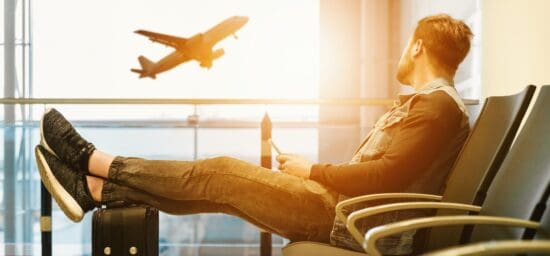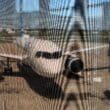___________________________________________________________________________________________________________________
HIGHEST EVER WELCOME BONUS FOR THIS CARD!
For a card that charges an annual fee of $150, you can earn 60,000 points + $200 with a single welcome bonus. Click on the link below to find out more…
CLICK HERE FOR THIS LIMITED TIME OFFER
___________________________________________________________________________________________________________________
Post Covid-19, we’ve seen a resurgence of travel across the world. FOMO travel or revenge travel is a thing now. While travel companies had a torrid time business wise due to Covid-19 inflicted lockdowns, the recent travel rebound has been a massive shot in the arm for them. However, new regulations taking shape in Europe could adversely affect affordability for many travelers. How bad will the impact be? Will air travel only continue to get more expensive going forward?
New Air Travel Compliance Regulations
As per this report by Bloomberg, the genesis really lies in the upcoming changes to two major regulations in Europe. This pertains to airlines requiring to have ’emissions allowances’.
Airlines must have enough emissions allowances to cover every metric ton of carbon dioxide released into the atmosphere on flights starting and ending in the European Economic Area, the UK and Switzerland. Right now, they get about half of those allowances for free. But that deal comes to an end in 2026, as the share of allowances they have to pay for starts to rise from 2024. That is effectively going to double their carbon costs over just three years.
As per a recent analyst report, these new regulations could end up costing airlines in Europe close to 5 billion Euros in 2027. However, there are even more ambitious goals that have been set for 2050. However, this will increase the cost burden on European airlines exponentially.
A report by research groups SEO Amsterdam Economics and the Royal Netherlands Aerospace Centre, commissioned by airline industry bodies, has put the cost of reaching net zero by 2050 at a whopping €820 billion.
The analyst reports conclude that given the airlines’ existing cost structures, it may be inevitable that these costs are passed on to customers in the form of higher prices.
Both reports conclude the sector won’t be able to absorb these costs itself. The changes to the EU ETS alone will slash the operating profit of the continent’s six largest point-to-point airlines (Ryanair Holdings Plc, EasyJet Plc, Wizz Air Holdings Plc, Vueling, Eurowings and Transavia) by an estimated 77%. That means ticket prices will have to be higher, which in turn means that demand destruction is inevitable. As Irving writes: “If it were possible to charge more without spoiling demand, airlines would have already been doing so.”
The Pundit’s Mantra
We’ve seen both sides of the argument when it comes to the effect of air travel on the environment. However, to what extent can regulations bring about a positive change? Also, airlines run businesses that aim to make a profit. While new regulations may have the best intention vis a vis protecting the environment, there’s always going to be a disagreement about what the ideal balance is when it comes to reducing carbon emissions and running a profitable and growing travel industry at the same time.
Also, if Europe follows suit with implementing these regulations, then may not be long before we start seeing spillover effects of increased compliance costs to customers in other markets as well.
In your opinion, what’s the ideal balance? Would you be willing to pay more for air travel in order to comply with new regulations? Tell us in the comments section.
___________________________________________________________________________________________________________________
Never miss out on the deals, analysis, news and travel industry trends. Like us on Facebook, follow us on Instagram and Twitter and get the latest content!












